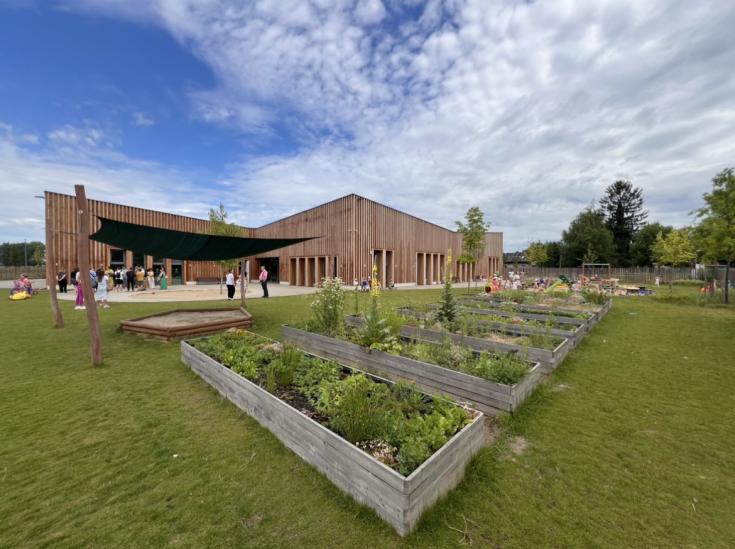A Model of Sustainability in Michalowice Municipality

The recent visit to Gminne Przedszkole, a kindergarten in Michalowice Municipality, highlighted the innovative practices in energy efficiency and sustainability that are setting new standards in early childhood education settings. This event, part of the SIreNERGY project consortium's study visit, offered participants valuable insights into how educational institutions can significantly contribute to broader sustainability goals while fostering environmental awareness among young children.
Eco-Friendly Technologies and Sustainable Practices
The Gminne Przedszkole exemplifies the integration of eco-friendly technologies and sustainable practices in its building design and operation. The facility boasts a range of environmentally friendly solutions, including:
- Enhanced Insulation: Increased insulation of external walls to improve energy efficiency.
- Heat Pump and Ventilation: Advanced heating solutions and ventilation systems with heat recovery to maintain optimal indoor conditions.
- Renewable Energy Integration: Photovoltaic panels installed on three roofs to harness solar energy, alongside green roofs on the remaining three.
- Efficient Lighting and Water Management: Daylight control, LED lighting systems, and an underground rainwater storage tank for irrigation purposes.
These installations are managed via a Building Management System (BMS), enabling efficient monitoring and management of all equipment and systems within the building. This automation significantly reduces energy consumption, estimated to save 117,699 GJ per year, and enhances the production of electricity and heat from renewable sources, thereby decreasing reliance on conventional energy and reducing emissions.
Environmental and Economic Benefits
The sustainable features of Gminne Przedszkole not only contribute to significant energy savings but also have a substantial environmental impact. The facility's design and technologies are projected to reduce carbon dioxide emissions by 7.64 tonnes annually. By focusing on energy efficiency and renewable energy, the project directly aims to improve air quality in Michalowice Municipality and the broader Mazowieckie Voivodeship.
Green Public Procurement and Competitive Dialogue
An essential aspect of the project's success was the implementation of Green Public Procurement and competitive dialogue processes before construction. These strategies ensured that sustainability was a core consideration in the design and construction of the kindergarten, resulting in a modern public building that sets a benchmark for future developments.
The Gminne Przedszkole in Michalowice Municipality stands as a testament to the potential of integrating sustainability into educational infrastructure. By adopting cutting-edge technologies and practices, the kindergarten not only enhances its energy efficiency but also serves as an educational model for children and the community. This project underscores the vital role that public buildings can play in achieving environmental goals and fostering a culture of sustainability from a young age.